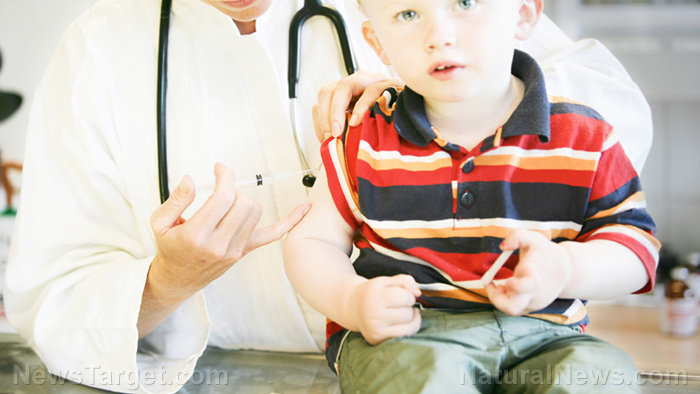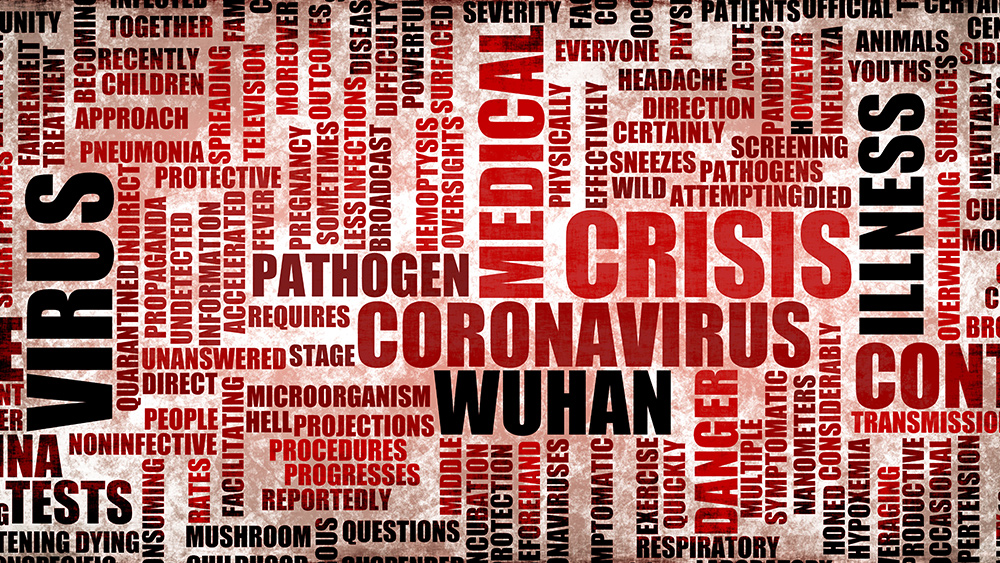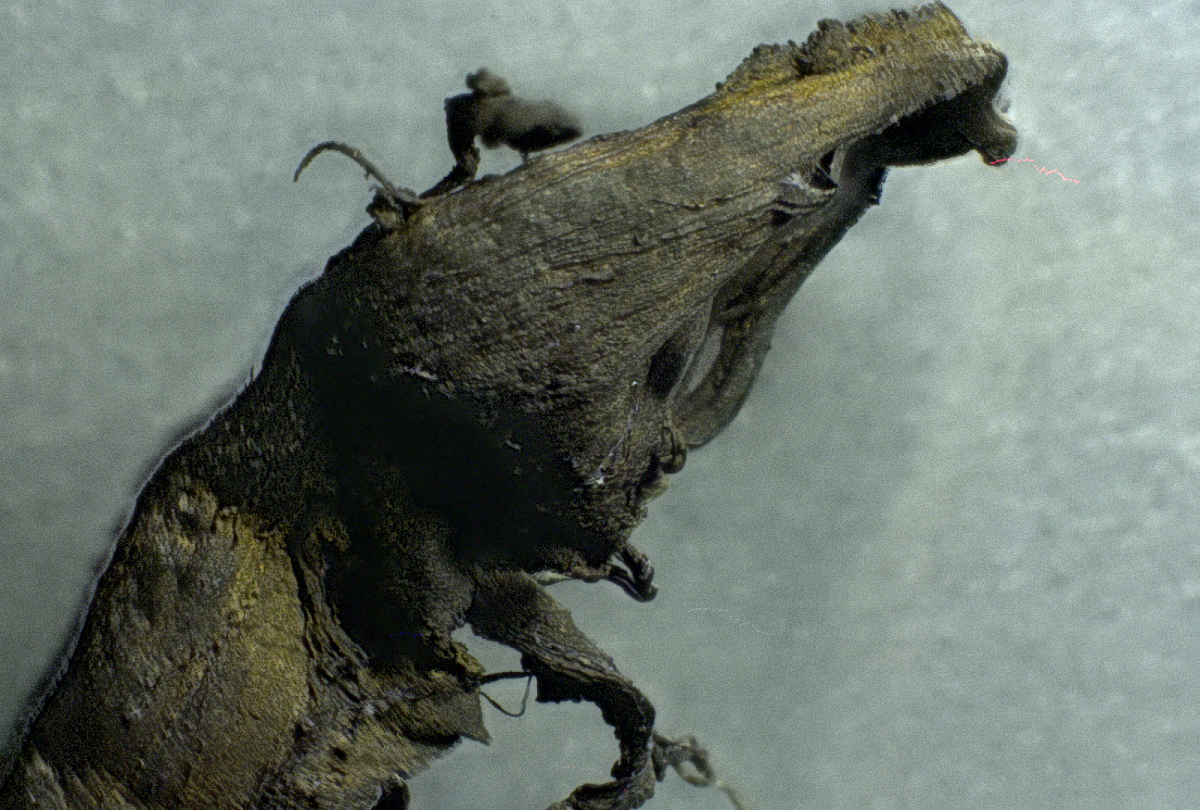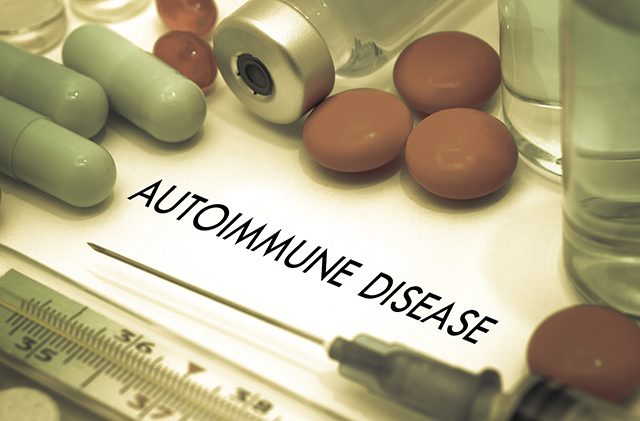Health experts raise concerns regarding COVID-19 vaccination for children
11/05/2020 / By Ramon Tomey

Two health experts have voiced their concerns regarding immunizing children against the coronavirus.
During an Oct. 22 Food and Drug Administration (FDA) hearing, pediatric infectious disease expert Dr. Cody Meissner brought up the issue of safety in testing a COVID-19 vaccine on children. Meissner, a member of the FDA’s Biological Products Advisory Committee, told his fellow committee members that “we’ve got to be very sure that these vaccines do not elicit an adverse reaction that may be delayed.”
Meissner added that the safety of any vaccine for children should be ensured, given COVID-19 was “a very mild disease” and the most adverse reactions to vaccines occur within six weeks of receiving the jab. Meissner added that if he were a part of the FDA, he would “certainly want to be very convinced about the safety of a vaccine” before approving a version for kids as lumping them in with adults would personally cause him some discomfort.
Another health expert seconded Meissner’s comments on a COVID-19 vaccine for children. Dr. Alan Moy, founder and scientific director of the John Paul II Medical Research Institute, told LifeSiteNews that he agrees with Meissner’s assessment. Moy added: “I think the vaccine should be thoroughly evaluated in adults first and those results have to be transparent, published, and approved by the FDA.”
The comments from Meissner and Moy came amid pharmaceutical company Pfizer’s announcement in mid-October that the FDA permitted it to conduct coronavirus vaccine trials on kids as young as 12 years old. Cincinnati Children’s Hospital in Ohio began trial vaccinations of Pfizer’s coronavirus vaccine candidate, developed in partnership with German company BioNTech, on a group of children – including a 12-year-old boy.
Operation Warp Speed eschews vaccine safety for quick turnaround time
Moy criticized Operation Warp Speed as “being too rushed” and pointed out the program’s inability to safely and quickly deliver a coronavirus vaccine. Operation Warp Speed is an effort by President Donald Trump’s administration to fast-track the development of a vaccine against COVID-19. Four drugmakers – Pfizer, AstraZeneca, Moderna and Johnson & Johnson – have been conducting phase three trials for their potential vaccines as of writing.
However, the FDA has bypassed vaccines being tested on animals to assess their safety and efficacy – something that Moy questioned. He gave one example from past pre-clinical studies: “Some animals developed a more serious pneumonia with SARS vaccines when subsequently challenged with a live SARS virus than in non-vaccinated animals.” A similar case happened in South Sudan when the country experienced an outbreak of vaccine-derived polio. Instead of providing immunity, the weakened virus in the oral polio vaccine mutated and caused sickness.
Even pharmaceutical companies whose vaccine candidates were developed under Operation Warp Speed put their trials on hold after some volunteers experienced adverse effects.
British drugmaker AstraZeneca first suspended its trials in September after two of its volunteers developed spinal inflammation after being injected with its coronavirus vaccine. A month later, the company confirmed a third volunteer reporting adverse reactions – who eventually died. Meanwhile, American pharmaceutical firm Johnson & Johnson also paused its coronavirus vaccine trials after a participant developed an “unexplained illness.” The company said in a news release that its suspension complied with regulatory standards.
Lethal ingredients in experimental coronavirus vaccines are also a cause for concern
Moy previously wrote in an opinion piece for LifeSiteNews in August that Operation Warp Speed “is placing all of its financial resources towards vaccine approaches that lack a track record of success.” Seeing the adverse reactions in adult vaccine trial participants, it may turn out worse for juvenile volunteers as their immune systems are not yet fully developed.
Even more concerning are the substances found in these experimental vaccines. Aside from the dangerous chemicals such as aluminum and mercury, some even contain ingredients derived from fetal cells. Other COVID-19 vaccine candidates are adenovirus-vector vaccines that use the HEK-293 cell line, derived from fetal cells obtained from an aborted baby.
Based on data from Johns Hopkins University, the U.S. has a COVID-19 caseload of 9.2 million, the highest in the world. The country also logged a total of 230,967 deaths and 3.6 million recoveries.
Visit VaccineInjuryNews.com to learn more about the dangers of experimental vaccines to address the ongoing coronavirus pandemic.
Sources include:
Submit a correction >>
Tagged Under:
chidlren, children's health, children's vaccine, coronavirus, coronavirus vaccine, COVID-19 immunization, covid-19 pandemic, FDA, juvenile vaccination, mandatory vaccination, pandemic, phase three trials, safety trials, Vaccine deaths, vaccine injury, vaccine safety, vaccine wars, Wuhan coronavirus
This article may contain statements that reflect the opinion of the author




















